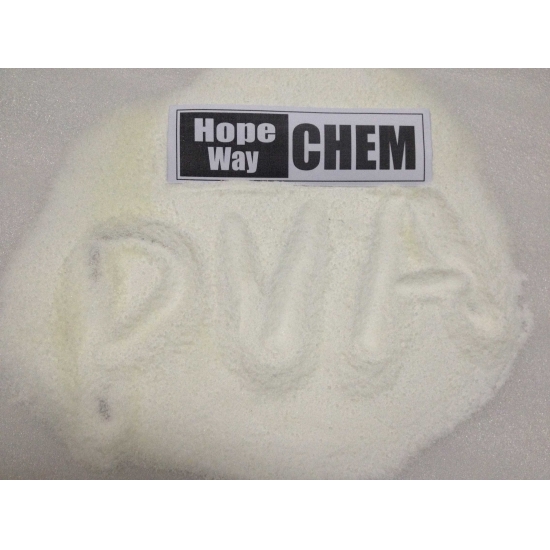- Home >> Polyvinyl Alcohol(PVA) >> PVA 2699

Polyvinyl alcohol ( CHINA PVA )
1. Polyvinyl alcohol PVA Performace
Polyvinyl alcohol (abbreviated as PVA) also can be called PVOH. It is a kind of heavy polymer, produced by polymerization and alcoholysis of vinyl acetate. PVA is white or light yellow floccus, granular or powdery in appearance. Its molecular formula is[CH2CHOH]n,and the molecular formula for some of the PVA is -[CH2CHOH]n-[CH2CHOOCCH3]m-. PVA is non-toxic, insipid and harmless. It is water-soluble and the solvent provide good viscosity and film building.
2.Polyvinyl alcohol features
Good thermal stability
No changes will take place below 140 ℃ till 160℃ it slowly turns yellow, intermolecular dehydration will take place between 170℃ to 200℃, intramolecular dehy-dration will take place above 200℃ , and will be discomposed completely above 300℃.
PVA is water soluble
PVA aqueous solution is very adhesive, especially for porous materials such as fiber, wood, paper and so on. Fully alcoholysis pva aqueous solution is easy to get at low temperature
PVA has the bio-degradation property
The degradation rate of pva with about 1700 polymerization degree is the highest.
3.Polyvinyl alcohol main use:
After PVA being treated by washing, wet-spinning, heating treatment, water-colling, oiling, it can obtain the fiber with good mechanical property.
PVA can be widely used for warp sizing and finishing .
Featured as anti-corrosion and anti-deterioration, stable quality etc, PVA aqueous solution has very strong adhesion force to cellulose (paper, cloth, wood).
PVA is widely used as architectural coating, such as for internal walls and floor.
Acetate, polyvinyl butyral and so on can be made by PVA reaction with formaldehyde, acetaldehyde, butyraldehyde.
PVA is also widely used for biodegradable film, protective colloid and soil amendments, seed and pharmaceutical coating agent, inorganic and electronic product adhesives, water-soluble film, cosmetic additive, temporary protective film and so on.
Specifications
polyvinyl alcohol
1, we offering many grade of PVA with
very competitive price and good quality.
2, sample is available.
Polyvinyl Alcohol data:
|
PVAL Type |
Viscosity (mp.s) |
Alcoholysis Degree %(mol/mol) |
Volatile (%) |
Sodium Acetate (%) |
Ash (%) |
PH Value |
|
PVA26-99(L) |
54-68 |
98.0-100 |
≤6 |
≤2.5 |
≤1.0 |
5-7 |
|
PVA24-99(L) |
44-54 |
98.0-100 |
≤6 |
≤2.5 |
≤1.0 |
5-7 |
|
PVA22-99(L) |
36-44 |
98.0-100 |
≤6 |
≤2.5 |
≤1.0 |
5-7 |
|
PVA20-99(L) |
30-36 |
98.0-100 |
≤6 |
≤2.5 |
≤1.0 |
5-7 |
|
PVA17-99(L) |
22-30 |
98.0-100 |
≤6 |
≤2.5 |
≤1.0 |
5-7 |
|
PVA26-88(L) |
54-68 |
86.0-90.0 |
≤6 |
≤2.5 |
≤0.7 |
5-7 |
|
PVA24-88(L) |
44-54 |
86.0-90.0 |
≤6 |
≤2.5 |
≤0.7 |
5-7 |
|
PVA17-88(L) |
20-26 |
86.0-90.0 |
≤6 |
≤2.5 |
≤0.7 |
5-7 |
|
PVA05-88(L) |
4-6 |
86.0-90.0 |
≤6 |
≤2.5 |
≤0.7 |
5-7 |
Application: Mainly used for sizing textiles, bonding agent, packing material of food, building paint, emulsifying agent etc.



